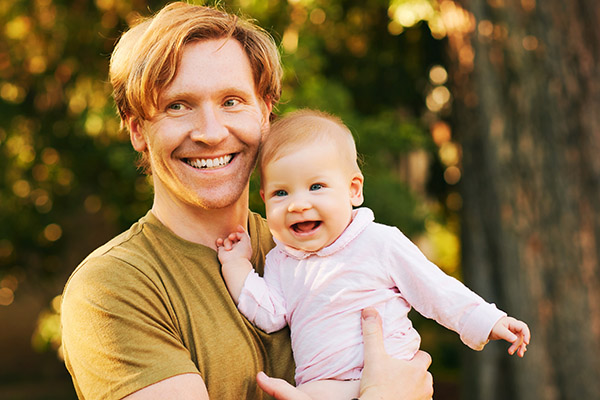 Seeing your pediatric dentist before your baby’s first tooth erupts will help you prepare for that special moment. The changes you will face may be overwhelming at first, but you and your baby will surpass them. You must know what you can about your baby’s first tooth. If you want to find out about the essentials, here are the details from a pediatric dentist.
Seeing your pediatric dentist before your baby’s first tooth erupts will help you prepare for that special moment. The changes you will face may be overwhelming at first, but you and your baby will surpass them. You must know what you can about your baby’s first tooth. If you want to find out about the essentials, here are the details from a pediatric dentist.
The emergence of the first tooth
The first tooth often comes out at six months. It is still fine if the baby has it earlier or later. The eruption of the first tooth varies in children. The two bottom front middle teeth come out first. Then, the two top front middle teeth will follow. The side and back teeth will erupt next.
The teething stage
In some babies, teething symptoms show only when the first tooth erupts. Others do not feel any discomfort even when their teeth emerge. There are also babies who experience discomfort even before the first teeth erupt. Parents often become anxious when the teething symptoms start.
A teething baby will want to gnaw or chew on something. Expect the baby to become irritable, sleep less, pull on his or her ears, drool, and eat less. There may also be some swelling in the area where the first tooth would be emerging. Some babies have a low-grade fever as well.
Relief for the accompanying pain
Babies often have teething pain when the tooth starts erupting. Parents can soothe the pain by massaging the swollen gums with their clean fingers. A frozen washcloth or a cold, solid teething ring can also help ease the discomfort. Supervising the baby while eating a teething biscuit is ideal. The chunks breaking off are choking hazards. A pediatric dentist may recommend a weight-appropriate amount of acetaminophen or ibuprofen (if the baby is over six months).
Adding fluoride
Fluoride is a natural mineral capable of preventing tooth decay. It makes the enamel strong enough to block the damaging effects of bacterial acids. Some areas have fluoridated tap water. Giving the baby some of the tap water in a sippy cup can introduce fluoride to the baby’s teeth.
Fluoride varnish
A pediatric dentist can talk to the parent about protecting the child’s first teeth with a fluoride varnish. This varnish is a protectant against cavities. The attending pediatrician can apply this varnish. A baby, who has a pediatric dentist, can have the treatment at the clinic during the first dental visit.
The introduction to dental care
The age for this visit varies. It depends on the parents and when the first teeth erupt. It is common to have the first dental visit by the baby’s first birthday. By age one, establishing a dental home routine is ideal. This means every member of the family must practice good oral care habits.
Your pediatric dentist will help establish your baby’s optimal dental health
It can be challenging to deal with the emergence of the first tooth. Your child may or may not experience discomfort. You will have your pediatric dentist help your family power through this stage. Regular visits with your pediatric dentist can help your experience be more pleasant and stress-free.
Request an appointment or call Parkside Pediatric Dentists at 925-504-4011 for an appointment in our Concord office.
Related Posts
Pediatric dentistry is an area of dentistry that focuses on the oral health of children. Starting good dental hygiene habits early in life is important. As the Centers for Disease Control and Prevention states, more than 50% of children under the age of nine have had at least one cavity in their baby teeth, and…
Dental crowns are important in pediatric dentistry. Each primary tooth is a living guide for the development of permanent teeth. But baby teeth can also suffer from decay. So restoring these teeth is important for the general health of your child. If you want to know if pediatric dentistry uses dental crowns, here are the…
Pediatric dentistry is the practice of providing preventive and therapeutic oral care to children under the age of 18. It is recommended that children begin seeing the dentist early, no later than the first birthday. Preparing your child for their appointment ahead of time helps to make it easier for everyone involved.A trip to a…


